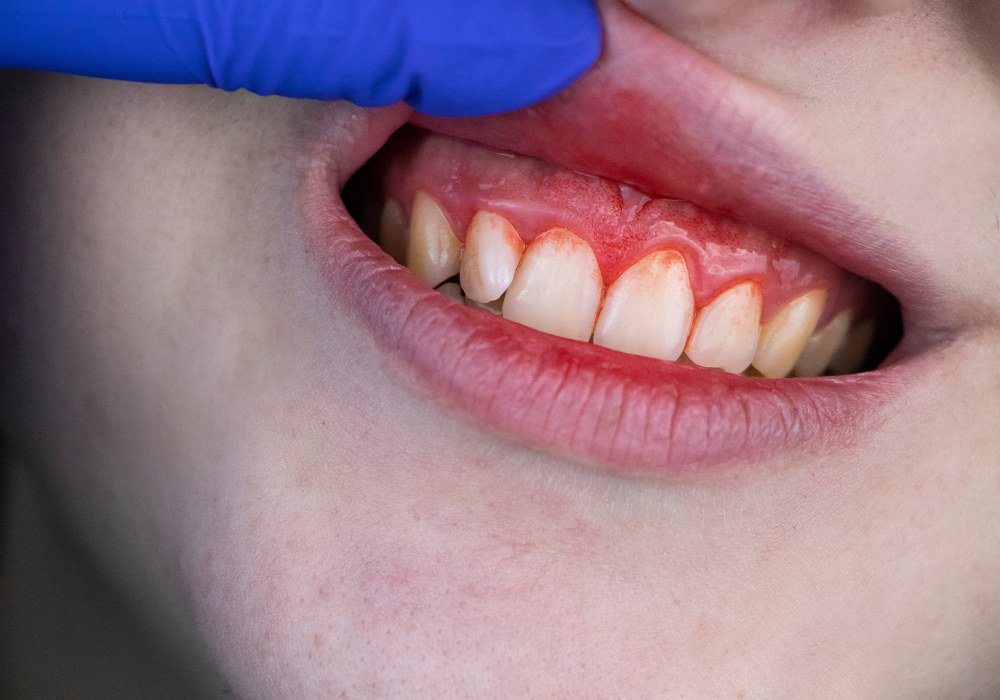Gingivitis and Periodontitis: Why You Shouldn’t Ignore Bleeding Gums?

Healthy gums are an important part of overall oral health. Nonetheless, a lot of individuals disregard bleeding gums since they believe it to be a minor problem. In actuality, this sensation might be a sign of gingivitis, a dangerous illness that can develop into periodontitis and cause tooth loss if treatment is not received.
It’s vital to determine the source as soon as possible and seek treatment if you regularly get bleeding gums. This article explores the main causes of gum inflammation, its stages, potential consequences and effective treatment and prevention methods.
What Is Gingivitis and Why Does It Occur?
Bacterial plaque accumulation on and beneath the gum line is usually the cause of gingivitis, the initial stage of gum inflammation. Generally speaking, germs cannot grow if teeth are cleaned on a regular basis. However, poor oral hygiene leads to the formation of dental plaque, which hardens into tartar over time, creating an ideal environment for bacteria to thrive.
Main Causes of Gingivitis:
- Inadequate or poor dental hygiene.
- Lack of professional dental cleaning.
- Tartar and plaque accumulation.
- Alcohol consumption and smoking.
- Inadequate intake of vitamins, particularly C.
- Hormonal fluctuations (menopause, pregnancy).
- Chronic diseases or weakened immune system.
Gingivitis can develop into periodontitis, a chronic and irreversible disorder that affects the gums and the bone that supports the teeth, if treatment is not received.
How to Distinguish Gingivitis from Periodontitis?
Gingivitis and periodontitis are different stages of gum disease, but it is important to recognize their differences.
Gingivitis:




Periodontitis:




Gingivitis may be reversed, but periodontitis needs extensive care and may even require treatment.
How Does Periodontitis Affect Overall Health?
Periodontitis affects more than simply dental health. Chronic gum inflammation may have detrimental effects on the overall body, according to scientific study.




How Do Periodontitis and Gingivitis Get Treated?
Restoring gum health is far more likely with early treatment.
Treatment for Gingivitis




Treatment for Periodontitis




In more extreme situations, if severe periodontitis causes teeth loss, dental implants may be required.
How to Prevent Gingivitis and Periodontitis?
To prevent gum inflammation, follow these essential oral care practices:





Conclusion
Gum bleeding is a serious indicator of a continuing inflammatory process rather than a minor problem. Gingivitis can progress to periodontitis if treatment is not received, which can cause serious issues including tooth loss.
Gum disease may be prevented and dental health can be restored with the help of modern dentistry’s efficient treatment techniques. However, prevention and regular dental care are the greatest ways to avoid issues.
If you notice symptoms of gingivitis or periodontitis, don’t delay visiting our dentist. Timely treatment can help preserve not only your beautiful smile but also your overall health! Schedule a consultation at KClinics today and our dentist will help you keep your smile always healthy.



